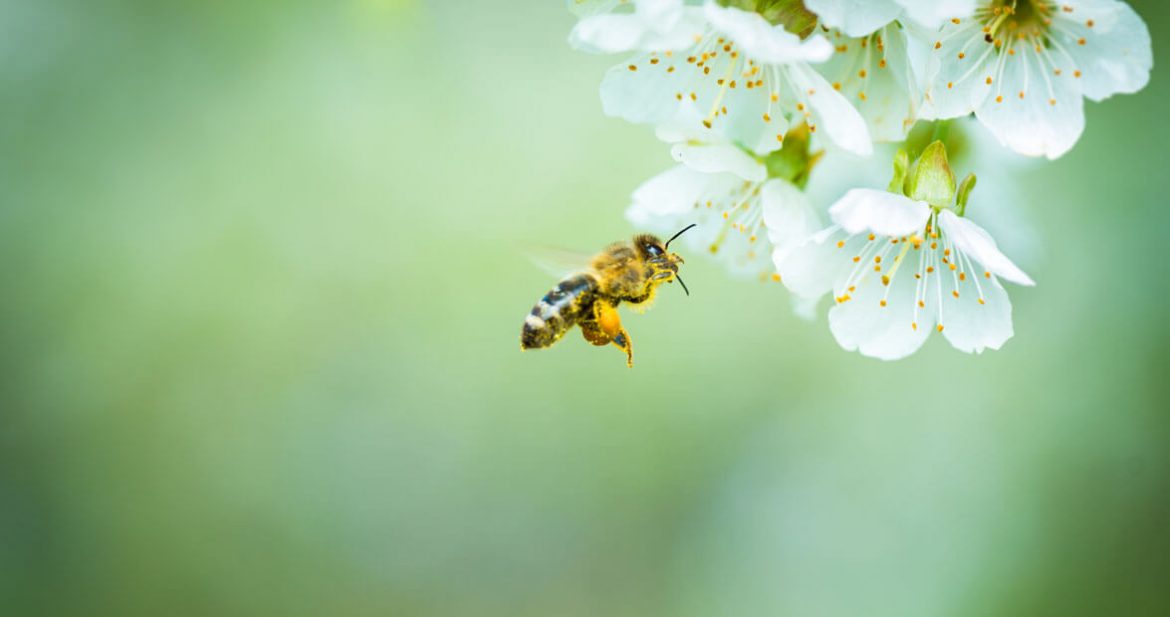Image Source: Our State
Today is dedicated to raising awareness for one of the world’s most important pollinators, bees!
In 2017, The UN declared May 20th as World Bee Day with the hope to bring more acknowledgment, awareness, and education to the critical role bees play in our ecosystem. Bees are vital to the sustenance of a functional, healthy, and balanced ecosystem and contribute heavily to the global food supply. In fact, pest control expert and CEO/Founder of EarthKind, Kari Warberg Block, informs that bees pollinate about one-third of our world’s crops. Additionally, according to the U.S. Department of Agriculture’s Natural Resources Conservation Service, more than 3,500 species of native bees help increase crop yields, with some scientists estimating that “one out of every three bits of food we eat exists because of animal pollinators like bees, butterflies, moths, birds and bats…”
But, like many other pollinators, bee populations are under threat and are rapidly declining. Honeybees pollinate $15 billion worth of US food crops each year (AP News), but according to data from the University of Maryland and the Bee Informed Partnership, from April 2018 to April 2019, US beekeepers lost 40.7% of their honeybee colonies, hitting a new all-time high. Scientists believe this is due to a variety of factors such as habitat loss, the use of agricultural pesticides, mono-cropping, a surge in parasitic mites, and climate change.
“Without pollinators, agricultural economies, our food supplies, and surrounding landscapes would collapse. Bees are responsible for pollinating our nutritious, micronutrient-rich foods like fruits, nuts, seeds, oils, and vegetables. So, while you may not want them in your direct outdoor living space, you certainly want these critters working to sustain our ecosystems and to produce our natural resources by helping plants thrive. Without bees, we’re in trouble” says Warberg Block.
So, what can people do to help?
The Food and Agriculture Organization of the United Nations suggests that some ways individuals can help are by buying raw honey from local farmers, growing diverse, native plants in your backyard or garden, setting up a “bee water fountain” in a shallow water bowl to leave out for them, and to avoid the use of pesticides, fungicides, or herbicides around the lawn and garden. For beekeepers or farmers, reducing pesticide use and diversifying crops will also help.
Warberg Block also suggests some ways to peacefully coexist with bees by:
- Turning off any porch and backyard lights at night. Instead, light candles and/or create a firepit. The smoke emitted works to deter bees by hindering their sense of smell.
- Beware of What you Wear: There’s a reason why beekeepers wear white. Bees are attracted to bold, deep colors. So, opting for more toned-down colors or wearing white will make you less attractive to bees. The same concept applies for a tablecloth setting, while it may not be ideal, using a white tablecloth outside will also help keep the bees away!
- Movement: Though it may feel instinctual to swat or run when a bee is in sight, doing so will actually increase the likelihood of them stinging you. Bees typically only sting when they feel threatened, so the best thing to do is to stay calm and still.
- Avoid sweet fragrances: Bees are attracted to perfumes, sweet juices, sodas, and fruits (especially watermelon), so be conscious of what you’re bringing outside. If you do bring out some sweet treats, be sure to keep them covered!
- But on the contrary, there are certain scents that will keep them away. Place a pot or two of marigolds on and outdoor table, or scatter mint and cloves across it, to help keep bees at bay.
- Create a Decoy: If you’re spending extended time in a certain area outside, make a decoy to attract the bees to go elsewhere. Leave a cup of soda or juice in one particular area away from where you’ll be, making sure no children are near, and the bees will be buzzing elsewhere!
How will you ‘bee’ proactive and help save our pollinators?
 Food
Food Farmers
Farmers Sustainable Living
Sustainable Living Living Planet
Living Planet News
News